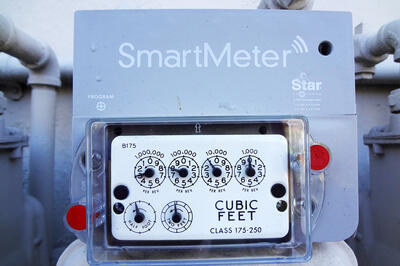Bronx Co-op Board Outfoxes Con Edison Smart Meter
Bill Morris in Bricks & Bucks on June 9, 2021

This Bronx co-op consists of two virtually identical 80-unit buildings that were erected 12 years ago and recently equipped with Con Edison smart meters. Though no one realized it when the COVID-19 pandemic hit, this co-op would provide a textbook controlled experiment for proving that the new generation of smart meters are not infallible.
Over the course of 2020, as the lockdown dragged on and many people worked from home, one of the co-op’s two buildings got sharply higher gas bills from Con Edison. The utility had an explanation.
“Con Edison said their protocol was not to read meters during the pandemic,” says Thomas Thibodeaux, chief financial officer at the co-op’s management company, New Bedford Management. “Their estimated readings were based on historical use, and it’s possible more gas was used during the pandemic. They also said that smart meters are more accurate than the old meters, which, due to friction, slow down over time. It sounded logical.”
Until it didn’t. Over the course of 2020, the discrepancy between the two buildings’ gas bills kept mounting until it totaled roughly $100,000. “These are identical buildings,” Thibodeaux sas. “It didn’t make sense.” It was time to fight back.
The co-op board provided the onsite manager, Alex Sari, with past gas bills and internal correspondence, the ammunition he would need to fight Con Edison. “The board was very helpful,” says Sari, who arranged for Con Edison staffers to visit the property three times. Finally, on the fourth visit, an official higher up than a meter reader showed up in April. “He admitted that one of the meters was going too fast,” Thibodeaux says. “They tried to reprogram it onsite. That didn’t work, but at least we had some validation.”
The co-op had something else working in its favor. “If you’re an isolated building,” Thibodeaux says, “it’s pretty hard to challenge Con Edison’s readings. Dealing with them is like dealing with City Hall – they tell you to pay the bill and then you can dispute it. We were fortunate in that we had an almost controlled experiment with two identical buildings next door to each other.”
After the discovery of the faulty meter, Con Edison started adjusting the bills. The building’s gas bill for March was $13,000, but billing was then put on “pause” – and the April bill was zero. Now the board and management are awaiting the utility’s verdict.
“Once they confirm something’s wrong with a device,” Sari says, “it goes to the accounting department, and they have 30 days to determine how much of a credit the building is due. They have a formula. They use bills from previous years, and they told me they’ll compare this building to the identical one next door.”
(A Con Edison spokesman was unable to confirm, before this article was posted, if this is an accurate description of the utility’s procedures.)
The 30 days elapsed on May 27, and Sari says he expects the result of the appeal to show up on the co-op’s next gas bill, due in mid-June. He’s optimistic that the news will be good: “It will be up to the board to decide if they want a credit on future bills or a check.”
Thibodeaux is optimistic, too. “Whatever the final number is,” he says, “just getting Con Edison to acknowledge that something’s wrong, that’s a big win. This is a moral victory – and a financial one.”